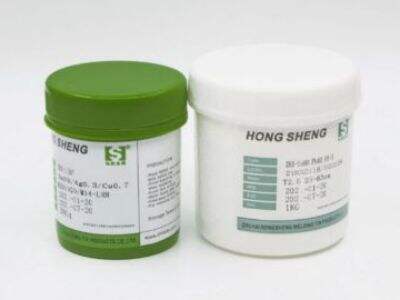The application of solder wire is one of the habits in electronics work. It acts as a conductor of gadget components to enable an unhindered flow of electric current over them. Hence, the gadget will work as required and achieve the intended purpose. This is an essential step as the selection of the right solder wire can significantly affect the success of your project. Here we are going to mention below some key factors to remember while selecting solder wires for your electronics projects.
Things You Should Consider in Solder Wire
Now, solder wire is available in lots of different varieties. There are two main types of solder wire, lead-based solder wire and lead-free solder wire. Lead solder wire contains a little bit of lead, and this makes it melt easily when soldering. Lead, however, can be bad for your health so caution is important here. Do not inhale any toxic fumes that will be produced when lead smelting by having proper ventilation within the room.
A safe alternative to lead solder wire is lead free solder wire which does not contain any harmful material that could be dangerous for you. All these are the reason why it is the most used form of solder wire for anyone who has knowledge of soldering devices. Consider your soldering experience, the requirements of your particular project, and your own preference in making a decision between lead-based or lead-free solder wire. This is the best choice you can have for your case.
Thickness and solder wire composition
Another area that must be taken into consideration is thickness — or diameter — of solder wire. The wider it becomes, the more solder will be touching the joint you are handling. For example, thicker solder wire works best when soldering a big joint where you need more solder. Thin solder wire is ideal for soldering small and delicate pieces for such a purpose. When selecting solder wire thickness, always consider component size and connections complexity level. This will help you make the best choice for your project. Similar to thickness, the composition of solder wire is also something to be taken into consideration.
The majority of the solder wire is composed of a mixture of lead and tin, and the percentage of each of them can be significantly different to create a huge difference in the flow and melt of the solder. The majority of the lead free solder wire are renowned alloys of Tin, Silver and Copper. These are safer than lead-based solder wire but provide good and reliable connections, which is essential to any successful electronics project.
How to Select Lead-Free Solder Tools: tips
Well, if you want to use lead-free wire solder gun for your electronics projects, there are some tips that can be helpful in selecting the best option.
Begin by acquiring a good solder wire first of all with a flux core. This will allow you to have good wetting and consistent performance for your soldering. It is also a good idea to inspect the composition of the solder wire; standard solder wire is a mixture of tin, silver, and copper which will yield optimum results.
 EN
EN
 AR
AR
 FR
FR
 DE
DE
 RU
RU
 VI
VI
 TH
TH
 TR
TR
 MS
MS
 BE
BE


